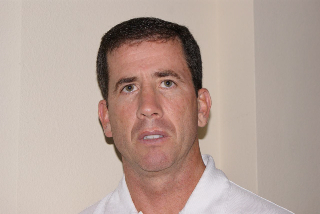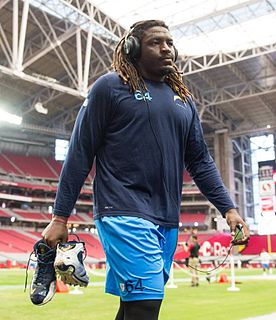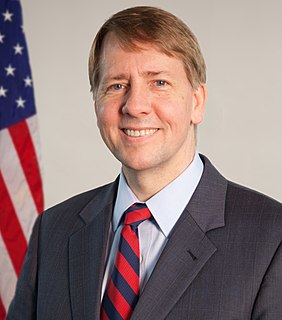A Quote by Ben Bernanke
Consumers going through foreclosure typically will see their credit scores drop, raising longer-term questions about their ability to rebound financially and perhaps pursue a more sustainable home purchase at some later point.
Related Quotes
Consumers will purchase high quality products even if they are expensive, or in other words, even if there are slightly reasonable discount offers, consumers will not purchase products unless they truly understand and are satisfied with the quality. Also, product appeal must be properly communicated to consumers, but advertisements that are pushed on consumers are gradually losing their effect, and we have to take the approach that encourages consumers to retrieve information at their own will.
One of the issues with some of these lenders is going to be, where will their provider of credit be when there's a crisis? That's why some of these smarter services, to support their operations, are courting more permanent capital. They want a source of longer-term funding that can survive a crisis.
If we human beings learn to see the intricacies that bind one part of a natural system to another and then to us, we will no longer argue about the importance of wilderness protection, or over the question of saving endangered species, or how human communities must base their economic futures - not on short-term exploitation - but on long-term, sustainable development.
Autonomous vehicles, because they'll be able to operate at a lower cost, will be able to pull more consumers into the Lyft network. And as you have more people switching from using their own car, they'll be taking more rides that still require a person behind the wheel. We think that in the foreseeable future of the next five-plus years, the number of human drivers we need on the road is going to keep going up. Longer term, of course, when the cars are fully autonomous, there will be a big shift.
With apologies to the green movement, "sustainability" is a myth. History and archaeology show that societies are always moving to the edge of crisis, "falling forward" through growth, but then responding often successfully to the problems created. What we can hope for is that with a somewhat more controlled level of growth, and with longer-term preparations for change, we can keep responding to the inevitable smaller crises, as they arise, and continue to postpone until later and later the, perhaps ultimately inevitable, end of our civilization.
I don't think we should just 'muddle through' and ignore the question of life's meaning. Or better, perhaps, I don't think it is a question that can be ignored once the business of asking about the worth and significance of what one is doing - one's work, one's pleasures, one's ambitions and so on - has got going. You can't at any point stop the urge to ask Tolstoy's questions, '... and then what?', 'What's the point of that?'.
We need a wireless mobile device ecosystem that mirrors the PC/Internet ecosystem, one where the consumers' purchase of network capacity is separate from their purchase of the hardware and software they use on that network. It will take government action, or some disruptive technology or business innovation, to get us there.
'Sustainable Development' is an oxymoron. 'Development' in all it's senses entails expansion and wanting more. Continual expansion and wanting more are unsustainable. Globally we are approaching the point when the only sustainable way forward is to want less. Indeed, the choice element may be removed from us and we will just have to have less. In the meantime we still have some choices about how to influence our future
The event concept was sparked from a shared observation amongst these leading lifestyle brands that the economic rebound has spurred greater liquidity into real estate, the stock market is setting new heights and consumers are generally stepping out more for luxury goods and services. After many years of pulling back, it was fun to see guests flirting with temptation, whether that was a new home, a new car, a new look or just to learn more about the trends. Others were happy to take in all the action.




































